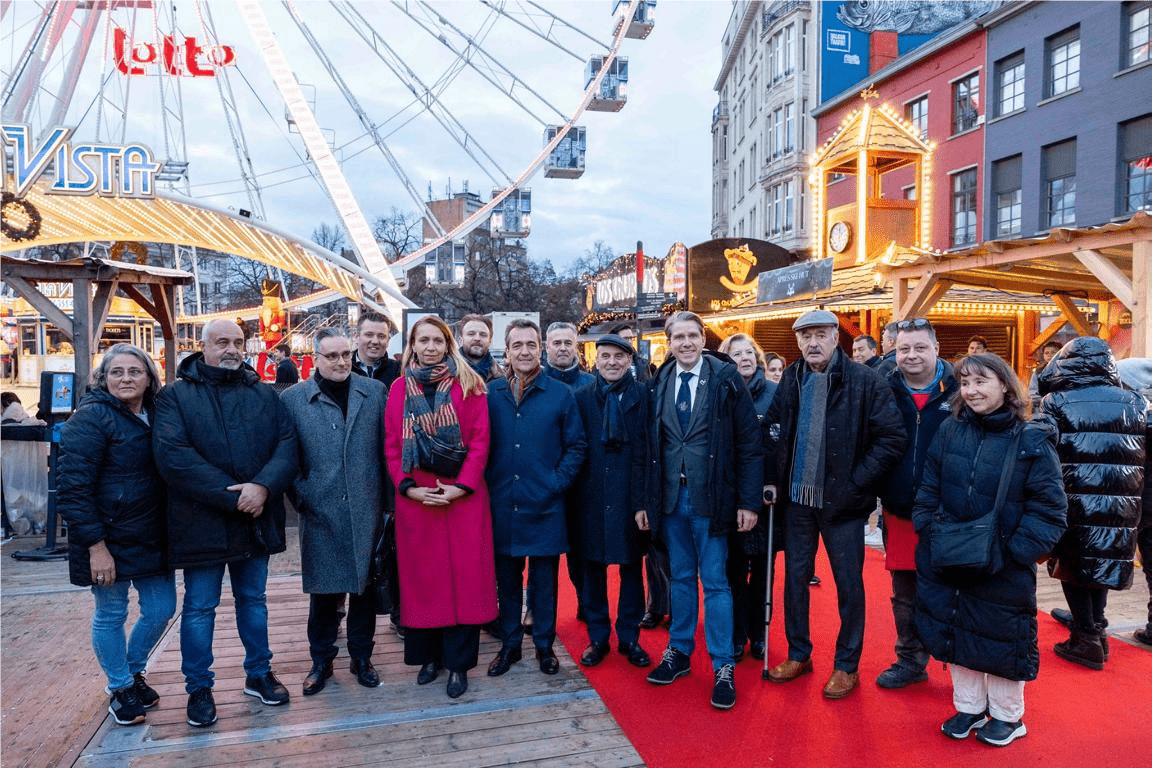UNESCO Recognition as a Boost for Europe’s Fairground Culture

Representatives from politics and showmen’s associations proudly announce UNESCO’s decision to recognize the living fairground culture. Photo: Courtesy of ESU
(eap) At its 19th annual meeting in December 2024, UNESCO’s Intergovernmental Committee for the Intangible Cultural Heritage officially inscribed the fairground culture in Belgium and France on the Representative List of the Intangible Cultural Heritage of Humanity. The decision, which was announced in the presence of numerous political representatives and association officials on the fringes of the Brussels Christmas Market, has since been seen as a significant milestone in the European fairground industry.
“This decision was and is a strong signal for the future of fairgrounds in Europe,” emphasizes Albert Ritter, President of the European Showmen’s Union (ESU). “It shows that our centuries-old tradition is recognized as cultural heritage and a vibrant part of social life.” ESU Secretary General Steve Severeyns also emphasizes the importance: “The UNESCO recognition has created new attention for the fairground tradition in politics, the media and other social institutions. People are once again asking more questions about where our fairgrounds come from, what they mean and the stories behind them. It is being emphasized that we must work together to ensure that the cultural asset of fairgrounds is safeguarded for future generations. This helps us enormously to make the cultural dimension of our work visible.”
Since the UNESCO decision, the historical and social significance of fairgrounds has come more into focus. Involvement in intangible cultural heritage programs and events enables showmen to share their experiences, provide insights into their work and convey the deeply rooted history of fairgrounds. “We are invited to conferences and cultural encounters to talk about our living traditions. This not only strengthens intercultural exchange but also helps to convey a realistic and positive image of our industry,” says Severeyns.
“The UNESCO recognition in Belgium and France also sends out a signal to other European countries. It emphasizes how important it is to preserve and promote living cultural forms. For the fairground industry, this is a historic opportunity to consolidate its own identity, inspire young generations to take up the profession and secure the future of fairgrounds in the long term. The award gives our culture the status it deserves – and motivates us to carry it forward with pride,” summarizes President Ritter. ■







